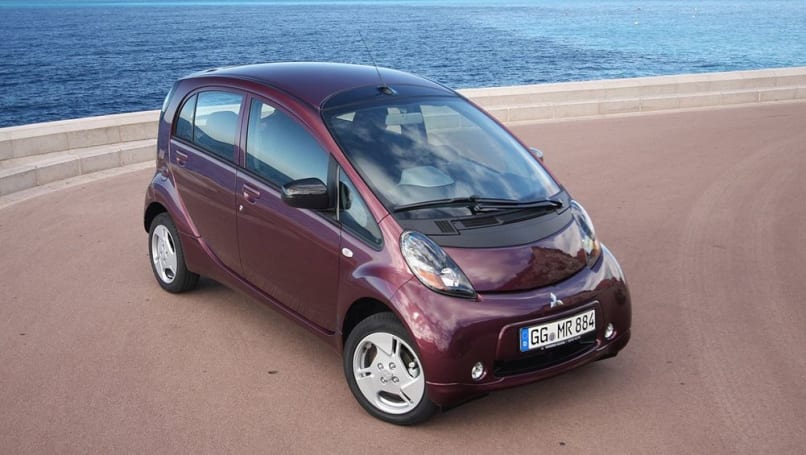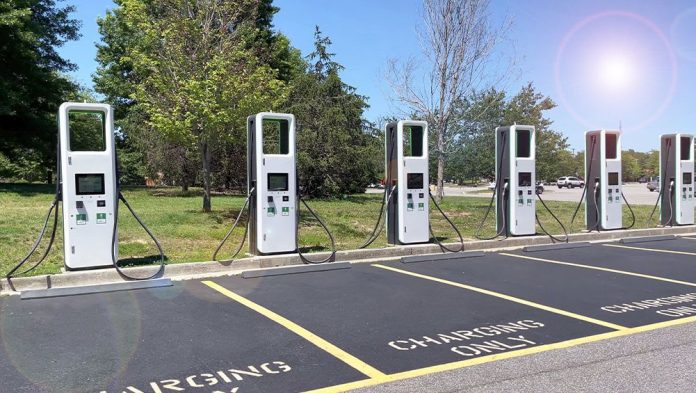Mitsubishi might have made a huge mistake. The company has decided that Australia isn’t ready for electric vehicles and so it won’t be bringing them here. That’s right: no EVs for you, Aussies. Not yet, anyway.
This isn’t the sort of decision you make lightly, and Mitsubishi Australia’s big boss Shaun Westcott, said he is feeling the pressure to bring battery electric vehicles to Australia, but he wasn’t going to cave.
Speaking to CarsGuide at the launch of the new Outlander plug-in hybrid, Mr Westcott said Mitsubishi had EVs, but he wouldn’t let them into the country until our electricity was clean, our power grid was more robust and infrastructure such as charging stations could handle the uptake of EVs.
Read more about the Mitsubishi
“That pressure is there,” he said.
“We have EV technology. But for Australia, with 75 per cent dirty power and a lack of infrastructure, we don’t believe that this is the right solution for now.”
It’s true, Australia as a whole obtains three-quarters of its electricity from burning black and brown coal, and yes, the power grid even struggles to cope with people putting on their air-conditioners in summer.
“Changing from 75 per cent dirty power requires billions of dollars of investment in renewable energy sources,” Mr Westcott said. “That’s going to happen. It must happen. Charging stations, infrastructure, our grid can’t cope. If you stick a lot of EVs on there, at the moment, a 30 per cent surge – can’t cope!
“Many governments around the world have these ambitious targets. And we should have. We must reduce emissions. We have to protect the planet.
“Us as directors have corporate governance and social responsibility. We have more responsibility than just the environment.”
The thing is, I don’t completely buy this thinking.
Mr Westcott is defending the decision not to bring EVs into Australia based on environmental, ethical and practical concerns. And while this sounds noble and honourable, since when has a business knocked back the opportunity to make more money?
To me it sounds as if Mitsubishi is stalling. And this is where I think a big mistake has been made. Only I don’t know exactly what the mistake is, I just have a hunch that Mitsubishi doesn’t have any electric vehicles to sell to us right now.
Perhaps Mitsubishi underestimated how quickly the transition from combustion engines to electric vehicles would accelerate. I think Mazda may have made a similar miscalculation and developed combustion engines further when it should have avoided going down the SkyActiv rabbit hole and started sooner on electric technology.
Perhaps Mitsubishi has invested so heavily in its PHEV technology that it wants a good return on the investment before it shelves it forever in favour of full electric vehicles?
The environmental argument is also difficult to swallow, too, given that 100 per cent of Mitsubishi’s products in Australia have internal combustion engines, even the hybrids.


More than half of Mitsubishi Australia’s sales are made up of diesel vehicles with the Triton ute accounting for nearly all of the diesel sales. So, if the environment really is a top priority then why isn’t the Triton getting the axe?
And the infrastructure point is almost cliché now. Since when have humans ever prepared something in advance to solve a problem? We’re a problem-first-then-a-solution kind of species. We push things until they break and then we fix them. That’s progress.
Look what happened with the National Broadband Network. Politicians and private companies tried to fix a problem in advance and failed due to bureaucracy.
An explosion in internet usage, not just in numbers but in the load began pushing the limits of bandwidth with the arrival of phones, Netflix and everything else going online and the true fix was private companies coming up with clever solutions. My home internet doesn’t even use the NBN and it’s faster.
This sounds crazy, but we’re very good at coming up with fantastic solutions in emergencies. Right now I’m going to tell you what will happen: electric vehicle sales will go through the roof, the power grid will struggle, people will have to queue around the block to charge their cars, and then government and private industry will embark on a massive program to build a more robust grid and provide charging stations.
Yes it’s not ideal, but that’s what will happen.
As for saying Australian consumers themselves aren’t ready for an EV, well Hyundai, Kia, Tesla, Mercedes-Benz, BMW, Audi and MG would disagree. Skoda’s brand director Michael Irmer even told me in an interview recently he was skipping hybrids altogether and going straight to electric vehicles with the Enyaq SUV next year.
“We understand our customers. We understand the journey they are on. At this point in time EV sales are two per cent of sales in Australia,” Mr Westcott said.


Two per cent is correct, but the acceleration in uptake of EVs is phenomenal. Year-to-date sales of electric vehicles (the end of July, 2022) have increased by 276.6 per cent over the same period in 2021. If not for the supply issue due to the shortage of semi-conductors and inventory constraints, this would be higher.
At this rate EV sales could sail past 10 per cent of all Australian cars sold within two years.
“We believe that PHEV is the technology that helps transition customers to EV. It’s the logical progression to informing, educating and exposing people to EV,” Mr Westcott continued.
Really? All 240 Hyundai Ioniq 5 EVs sold out within two hours of going on sale in 2021. A second batch of 135 Ioniq 5s went on sale on August 10 at 1.06pm and sold out completely at 1:16pm.
The same goes for Kia’s EV6 which has sold out for the next two years. It’s been so popular.
Then there’s the Tesla Model 3 which is the second-best-selling mid-size sedan so far this year behind only the Toyota Camry.
Hard to think that Mitsubishi doesn’t want a slice of that pie?


So, my feeling is that Mitsubishi has no EVs and the company is stalling for time as it rapidly develops them. If you look at Mitsubishi’s websites all over the world there’s a distinct lack of battery electric vehicles in any of their ranges.
Well, there is the Mitsubishi eK Cross EV kei car which has just gone on sale in Japan and the Airtrek which is only available in China. But that is pretty much it.
Mr Westcott is quick to defend Mitsubishi’s ability to make EVs or BEVs (battery electric vehicles) and points out, quite rightly, that the company was the first to sell a mass-produced BEV – the Mitsubishi i-MiEV in 2009.
“People ask why PHEV and why not BEV, as if we don’t know how to build BEVs. We built the first mass produced one in 2009 guys, we’re not new to this game,” he said.


“We just launched a kei car in japan that’s a BEV a few weeks ago, we know how to do BEV. We understand the technology, we were some of the first adopters of the technology and producers of these vehicles.”
Nobody can deny that either, and being part of the Renault-Nissan-Mitsubishi Alliance would see a sharing of technology. This alliance of the three manufacturers recently stated that it would have 35 electric vehicle models by the end of the decade.
“We can access EV technology. It’s like a filing cabinet. That’s the advantage of the Alliance. We pull out the drawer and say this is what we need now,” Mr Westcott said.
It’s true Nissan does have EVs in the form of the Leaf and new Ariya, which Mitsubishi could use as underpinnings for its own cars, but the thing is, it’s 2022 and parked in my driveway is a all-electric Kia EV6 that I’m testing – Mitsubishi’s future, only today.

